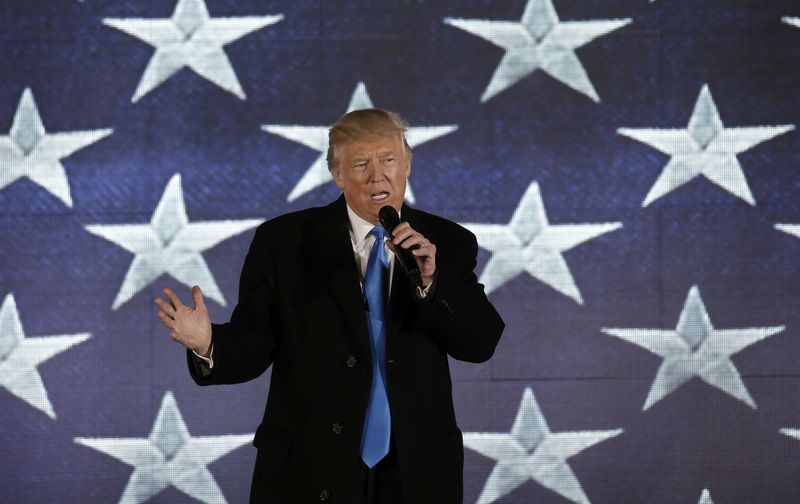WASHINGTON (Reuters) - Donald Trump will not wait for Congress to confirm his Cabinet positions to act on his vows to withdraw from the 12-country Trans-Pacific Partnership (TPP) trade deal and renegotiate the North American Free Trade Agreement (NAFTA), a spokesman for the president-elect said on Thursday.
Trump, who takes office as president on Friday, declared in November he would give notice of U.S. intent to withdraw from the TPP on “day one” of his presidency, terming it “a potential disaster for our country.”
Spicer told reporters Trump had said the moves would be made via executive order. “So I think you will see those happen very shortly," Spicer added. "I don't think he's going to wait. He's made it very clear that some of those things are huge priorities for him."
Trump's nominee to run the Treasury Department, Steven Mnuchin, said on Thursday that Washington can renegotiate NAFTA, which was signed by the United States, Canada and Mexico in 1994, in a way that benefits both the United States and Mexico.
"I think most people acknowledge NAFTA was negotiated a long time ago, that we should reopen this agreement," Mnuchin told U.S. senators in his confirmation hearing. "I'm optimistic that we can renegotiate that deal (in a way) that's both advantageous to us and advantageous to Mexico. That it's a win-win for both countries."
An adviser to the Trump transition told Reuters last week that Trump would not revive TPP, which has yet to be ratified by the United States, but would quickly pursue bilateral trade agreements.
The TPP has been the main economic pillar of the Obama administration's "pivot" to the Asia-Pacific region in the face of a fast-rising China.
Proponents of the pact have expressed concerns that abandoning the project, which took years to negotiate, could further strengthen China's economic hand in the region at the expense of the United States.

The trade minister of New Zealand, Todd McClay, said this week that it would be "interesting" to see whether momentum builds around the Regional Comprehensive Economic Partnership (RCEP), an Asian trade pact that includes China and India, if the United States pulls out of the TPP.